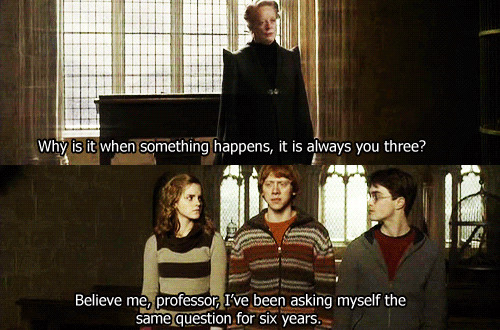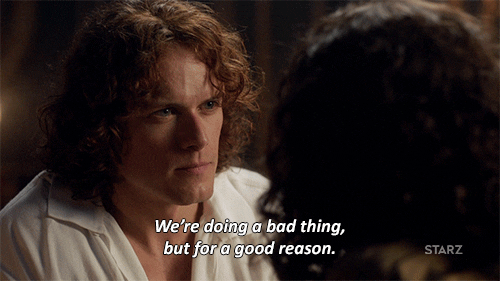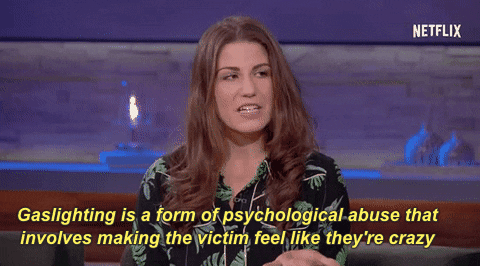|
BY MARYBETH GRONEK It’s the little foxes that spoil the garden. It’s the little stains that ruin the outfit. It’s the little shards of glass that, when stepped on, prove the trickiest and most painful to extract. Truth is, most dangerous people we meet aren’t serial killers. They are your average Joes (sorry to all the people named Joe out there) who *seem* okay for a while, then come at you with such cruelty that you’re like who the heck is this, and how did I not see this before? If we’re being real honest, though, there were things. Little things. Little things here and there that didn’t quite sit right. A weird look. A bizarre response to something someone else said. A visceral feeling to not disclose completely. Little subtleties that (should have) clued us in that something’s not quite right. That trouble is ahead. And then sh*t hits the fan and our subconscious is like Yep. Saw that coming a yardstick away. Because not every foe comes at us with a pitchfork. Because real danger is an iceberg; barely visible on the horizon, the true horror buried much deeper. Because we can’t see a wolf’s teeth until it growls. But we can notice the scowl. That’s what this article is about: identifying the *low-key* signs that someone is dangerous. Not murderous dangerous. Just the type that will steal your joy, throw shade your impact, & minimize your legacy. You know, the things that really matter. 1. They are tenacious about maintaining appearances. They are hyper-conscious of how they appear to others and actively work to control your perception of them. Whether it’s wanting to appear smart or strong or capable or ‘edgy,’ such people protect their image at all costs and view everything you say and do through the lens of does this threaten or uphold my image? This person will seem really normal and then fly off the handle all of a sudden to a seemingly innocent comment from a friendly source that was mistaken as a threat. For such an individual, nothing is ‘neutral’ — everything either supports or attacks the image of themselves they’ve constructed. It’s called narcissism in its extreme form (or megalomania when it’s most intense), but, honestly, most cases are less severe. And are perpetrated by people who, generally, care about others but don’t know how to go about maintaining relationship when they feel threatened. Which is often. 2. They have unresolved issues. You’ve heard the phrase: hurt people hurt people. When someone experiences pain and hasn’t sufficiently dealt with it or healed from it, you can bet they are dangerous. Much like the ‘appearances’ person, they seem normal until you unknowingly touch upon their unresolved issue. Unresolved issues manifest in different ways. It could be an overcritical, berating father whose son grows up to never be proud of himself or his work. So when you innocently remind him of something he has to do for you, he flies off the handle, not having resolved the issue of feeling inadequate. Or maybe the woman who was cheated on by a previous partner who can’t seem to trust any man— at work or in her love life — since. And when a male colleague or person she’s dating innocently omits key information she rails into him. Fearful, of course, that he’s being dishonest. Like the ‘appearances’ person, the ‘unresolved issues’ person reacts to every encounter through the lens of their pain. And thus, their behavior is erratic — normal in most circumstances, but completely irrational when intersecting with the unhealed wound. 3. They are a drama magnet. This is the person who seems to always be connected with relational drama. They cause repeated strife in the friend group, they’ve been ostracized from their family (by choice), they’ve “had to” cut out people from their life. Each of these in isolation may be justified and maybe isn’t so bad. The drama magnet, though, will have an ‘all of the above’ approach— a long history of stirring the relational pot. Boil down any controversy and you will find them at the center. Talk about a resume builder! Unlike Harry, Ron, and Hermione though, the drama magnet is not as self-aware and doesn’t realize that they are the epicenter of relational strife. I once had a friend like this. She would talk about people behind their back repeatedly. She cut herself off from her biological family. She caused drama at her church, to the point where she physically had to leave the state. She even ruined a budding romance of mine by poisoning the man’s opinion of me. Really gross stuff. Every place she traversed she left a path of destruction in her wake. Such people are dangerous because they are a ticking bomb: it’s only a matter of time before you are next. 4. They choose to air grievances publicly, not privately. Utilized by the insecure in physical venues and the cowardly in virtual spaces, public confrontation may seem like the *ultimate* power move. It’s celebrated in movies, TV shows, and other cultural benchmarks. The bowl in the china shop. The one who is “not afraid” to make waves. Real Housewives style. The truth is: they’re scared. Scared to share what is actually bothering them. Scared of being vulnerable. Scared of not getting what they want. Scared to be on the receiving end of your disappointment. And unable to bear its weight. So they put on a spectacle. Because then they only have to deal with your shock, not the substance of your concerns. A wise person once told me — praise publicly, critique privately. Why do we have so much trouble following this adage that we know, implicitly, is the honorable way? Because it’s easier to critique publicly. Private confrontation involves dialogue. A back and forth. Understanding, concessions, and oftentimes, meeting in the middle. And acknowledging that maybe I’m a bit in the wrong too. Critiquing privately involves introspection and personal growth. Essentially, it requires work from both parties .The painful, yet good kind of work. Dangerous people run from this at all costs. Their energy is spent elsewhere — preventing their ego from meeting their true self. Self-reflection cannot be permitted. So the environment that engenders such reflections (dialogue) must also be avoided. Dangerous people don’t talk through, they act out. You know what takes courage? Looking into someone’s eyes, one-on-one, and actually telling them how they missed the mark. If everyone out there actually did this, I believe we could heal our relationships. Heck, we could heal our land. 5. They have patterns of deception. And corresponding justification.There is no trait more universally bemoaned than deception. It is the scourge of every world that contains it and the downfall of every character that embraces it. Want proof? Look no further than our collective canon of literary examples. Satan was called “the great deceiver.” Judas Iscariot traded his friend for 30 silver pieces. From Othello’s Iago to Hamlet’s Claudius, Shakespeare villians share deception as their one linking ethos. Fast-forward a few hundred years. Scar deceived Mufasa. Peter Pettigrew deceived the Potters. Loki deceived all of Asgard (over and over again). The list is endless. When it comes to character constitution, there is no trait more corrupting and degrading. Or, as Marcellus puts it after seeing the ghost of Hamlet’s father, Something is rotten in the state of Denmark. Not every deception, though, is as deadly obvious as a Shakespeare play. And in 21st century life, it usually pairs with a hearty side of justification. I dated a guy a few years ago who was recently divorced. He treated me well and I thought he really treasured me. A few months in, I found out he had filed for divorce but it wasn’t actually finalized yet. He conveniently left out that detail. Of course he justified this oversight by his fear of losing me should I know the truth. Regardless of his reason, I couldn’t sugar-coat it — he intentionally deceived me. And then he tried to justify his deception. I started playing back our conversations and began seeing justifications everywhere, even for things I didn’t accuse him of. It made me doubt…pretty much everything. This deception-justification pattern is a common behavior of the dangerous. Why? Because like the drama magnet, it’s only a matter of time before you are the deceived party. And when that time comes, you won’t get a heartfelt apology. You’ll get a cold, hard, chilling, justification. No inkling of remorse, no desire to change on their part. To stay, at that juncture, would mean willingly agreeing to be duped in the future. And no self-respecting person can do that. To befriend a known deceiver is to agree to a fruitless relationship that is bound to end. Might as well start preparing the eulogy. 6. They refuse to take responsibility. “We’ve gotten to the point where everybody’s got a right and nobody’s got a responsibility.” Newton Minow, former FCC Chair A subtly dangerous person will refuse to take responsibility. For their own actions. For how those actions impacted you. For anything, for that matter. They are incorrigible — in the worst possible way. They cannot be prevailed upon to assume any sort of negative responsibility, perceived or otherwise. Any problem, should it exist in the world, is someone else’s fault. Do a quick scan of those in your relational web. Can you find someone who, to your recollection, has a habit of not taking responsibility for their actions? If so, stay far away. Chances are they are dangerous & you (luckily) have not had the occasion to find out. For the record, I think Lorelei Gilmore is delightful and not at all dangerous! ;) 7. They force you to doubt reality. Doubt is their name and gaslight is their game. This is when the person moves out of the *subtly* dangerous category and into the *overtly* dangerous category. They try to convince you something happened that didn’t. Or, more likely, they try to convince that you that something that did happen actually didn’t. Like their poor behavior (that you point out) or not fulfilling their word (which you call them on). Instead of making excuses or justification, which is insulting enough, they have the audacity to tell you you are not remembering things correctly. Sound familiar? Stephanie Sarkis, Ph.D. has done terrific work outlining other characteristics of gaslighters that really hits the mark. Gaslighting is a natural outgrowth of justification (#5) and not taking responsibility (#6). Instead of providing rationale or blaming someone else, the gaslighter just asserts ‘no you’re remembering it wrong, that’s not how it was.’ It involves a level of self-deception that is quite flabbergasting. And it violates trust between two people, which is the bedrock of a healthy relationship. If someone is trying to get you to doubt reality — RUN. I don’t think a dangerous person has to meet all of the above criteria. Heck, I don’t even think someone has to exhibit a natural progression of terrible behavior. Relationships aren’t that neat and tidy. Just one or two of these signs should raise alarm bells in your psyche. At the end of the day, it’s up to you to acknowledge these psychological “alarms” and determine what your next course of action is. Namely, if you will maintain or break rapport. Either way you win because you are now in control! The likelihood of getting caught off guard by dangerous behavior will be minimized. You are now equipped with the warning signs.
Why does this all matter? Because life is too short to spend it with toxic people. Maybe it’s just me, but ever since I hit my thirties my BS threshold has gone way up. I love my life and have no time or mental energy to waste on people who don’t deserve that investment. These signs help differentiate the healthy from seemingly-healthy. They prevent investing in someone who who won’t be in my life long-term. And they provide a sense of confidence and security that those in my inner circle can be trusted. Really trusted. So here’s to meaningful living. To enduring relationships. And to spotting the scowl before the growl. 😉
10 Comments
5/31/2020 02:11:34 pm
Very well chosen words. I so needed to read this today.
Reply
MaryBeth
5/31/2020 02:18:29 pm
Thanks, Anthony!
Reply
Bruce Melvin Vaughn
5/31/2020 06:49:40 pm
Thanks for your article. It reminded me of what it's like to have a toxic supervisor.
Reply
MaryBeth
6/26/2020 08:48:38 am
Thanks for reading, Bruce!
Reply
connie
6/3/2020 11:58:46 pm
Very thoughtful and thought-provoking article MaryBeth. I agree that toxic people steal our joy and self-worth. They cause drama and havoc. We should do everything possible to remove their influence from our lives. Thanks for shining a light on the danger signs.
Reply
MaryBeth
6/26/2020 08:49:05 am
Thanks for reading!!! :)
Reply
1/5/2023 03:12:24 am
Well to be honest it is very interesting post you have shared thanks for sharing this happy to read your blog.
Reply
1/5/2023 04:43:17 am
Hi Your post is so thoughtful, insightful, and thorough in written and verbal communication, and it has a talent for expressing ideas clearly..
Reply
Leave a Reply. |
Previous PostsArchives by Month
December 2020
Categories |
Site powered by Weebly. Managed by Namecheap






 RSS Feed
RSS Feed